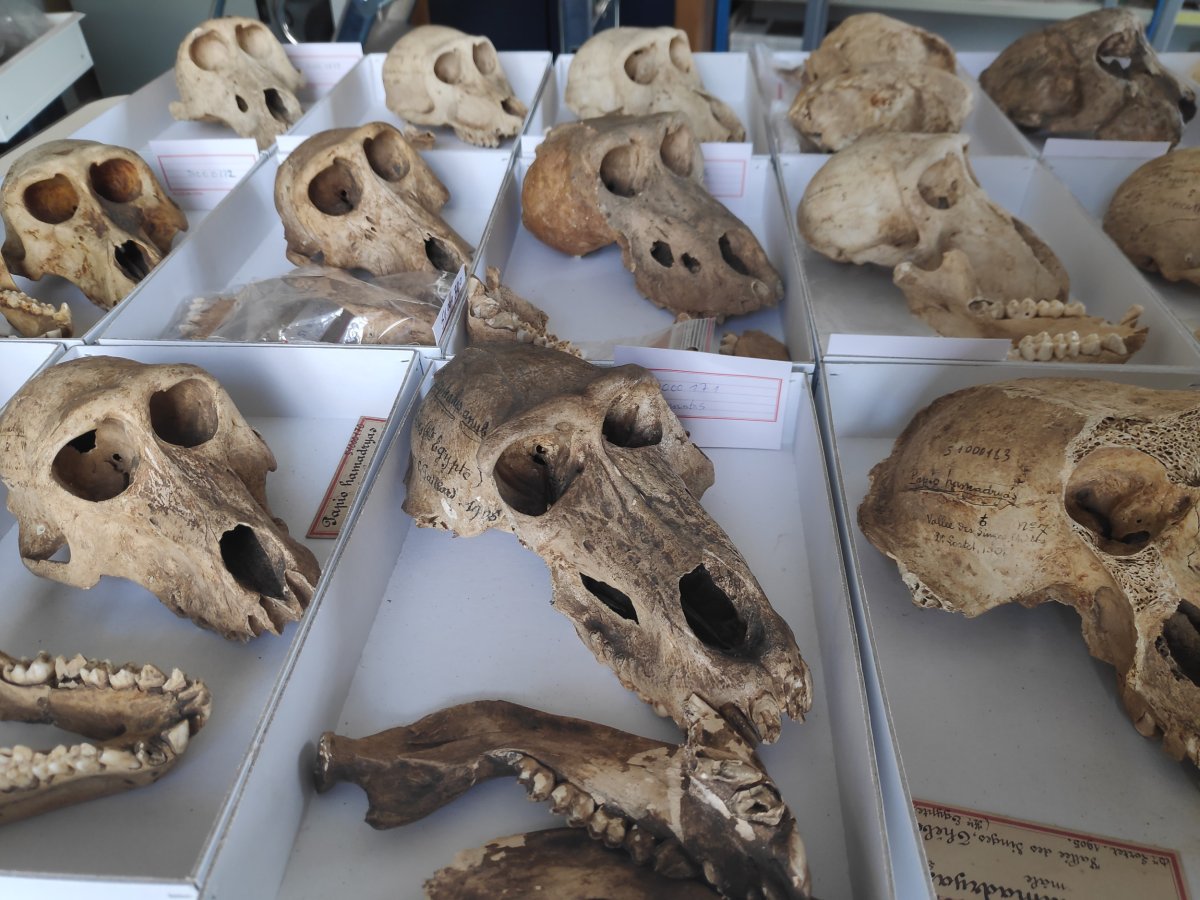Ancient Egyptians kept sacred, revered baboons in captivity, a new study has revealed.
Archeologists and historians already knew that Egyptians revered and mummified several species of animals including baboons. However it has not been clear whether, if at all, they were kept.
A new study published in the journal PLOS ONE—lead by Wim Van Neer of the Royal Belgian Institute of Natural Sciences, Belgium, and colleagues—now details a collection of 36 mummified baboon bodies, discovered in Gabbanat el-Qurud, in the so-called Valley of the Monkeys on the west bank of Luxor, in Egypt. And analysis into the bodes show they were not kept in good conditions.
"Life was not easy for Egypt's sacred baboons," the study reads. "Scientific study shows they suffered from malnutrition and lack of sunlight."

The skeletal remains were of varying ages and dated back to between 800 to 500 BC. Lesions and deformations in the bodies suggest they suffered from a lack of food and severe lack of daylight. Scientists concluded this was most likely due to them being born and raised in captivity.
"For over a millennium, from the ninth century BC to the fourth century AD, ancient Egyptians mummified millions of animals, considering them embodiments of gods among humans," Bea De Cupere from the Royal Belgian Institute of Natural Sciences, who worked on the study, told Newsweek.
"Cats, bulls, and ibises are commonly found in ancient cemeteries, and occasionally other species such as crocodiles and baboons occur, although the latter are very rare.
"Almost all of the pathologies we observed are related to severe metabolic disease, there is no or little for physical abuse or mistreatment. We believe that the intentions of the ancient Egyptians were good. They most probably tried to take good care of the baboons but this must not have been easy."
The study shows photos of the mummified baboons and the strange abnormalities found in their skeletons.
Other remains of the same species have been found at other ancient Egyptian sites, with similar abnormalities.
This suggests the ancient Egyptians were fairly consistent with the captive conditions in which baboons were kept, the study reported. Mummified baboons have also been discovered in Saqqara and Tuna el-Gebel.
Baboons, although revered in ancient Egypt, are not a native species, meaning they were likely imported there from other countries in Africa, according to the study.
It is believed that ancient Egyptians thought baboons were an embodiment of the moon god Thoth. The god was associated with writing, wisdom and magic.
The baboon's association with the god was most likely down to its human-like characteristics, as well as its intelligence and ability to communicate.
This is because Thoth was largely seen as a mediator between the gods and humans, according to the U.K.'s Reading Museum.
Baboons were also linked to a sun god, in ancient Egypt, as baboons usually bark during the sunrise.
It seemed that the captive baboons were always mummified. Ancient Egyptians mummified their dead as the body was seen as the home of a person's spirit. The mummification process preserved the body, meaning the spirit would not be lost.
Animals were mummified for several reasons, but mainly for the purpose that they represented specific deities, like the baboons.
"Concerning these baboons, we are doing microwear analysis on the teeth. This should allow to get a better idea of the types of food that were given to the baboons," De Cupere said."
Update: This article was updated to include quotes from Bea De Cupere.
Uncommon Knowledge
Newsweek is committed to challenging conventional wisdom and finding connections in the search for common ground.
Newsweek is committed to challenging conventional wisdom and finding connections in the search for common ground.
About the writer
Robyn White is a Newsweek Nature Reporter based in London, UK. Her focus is reporting on wildlife, science and the ... Read more
To read how Newsweek uses AI as a newsroom tool, Click here.








